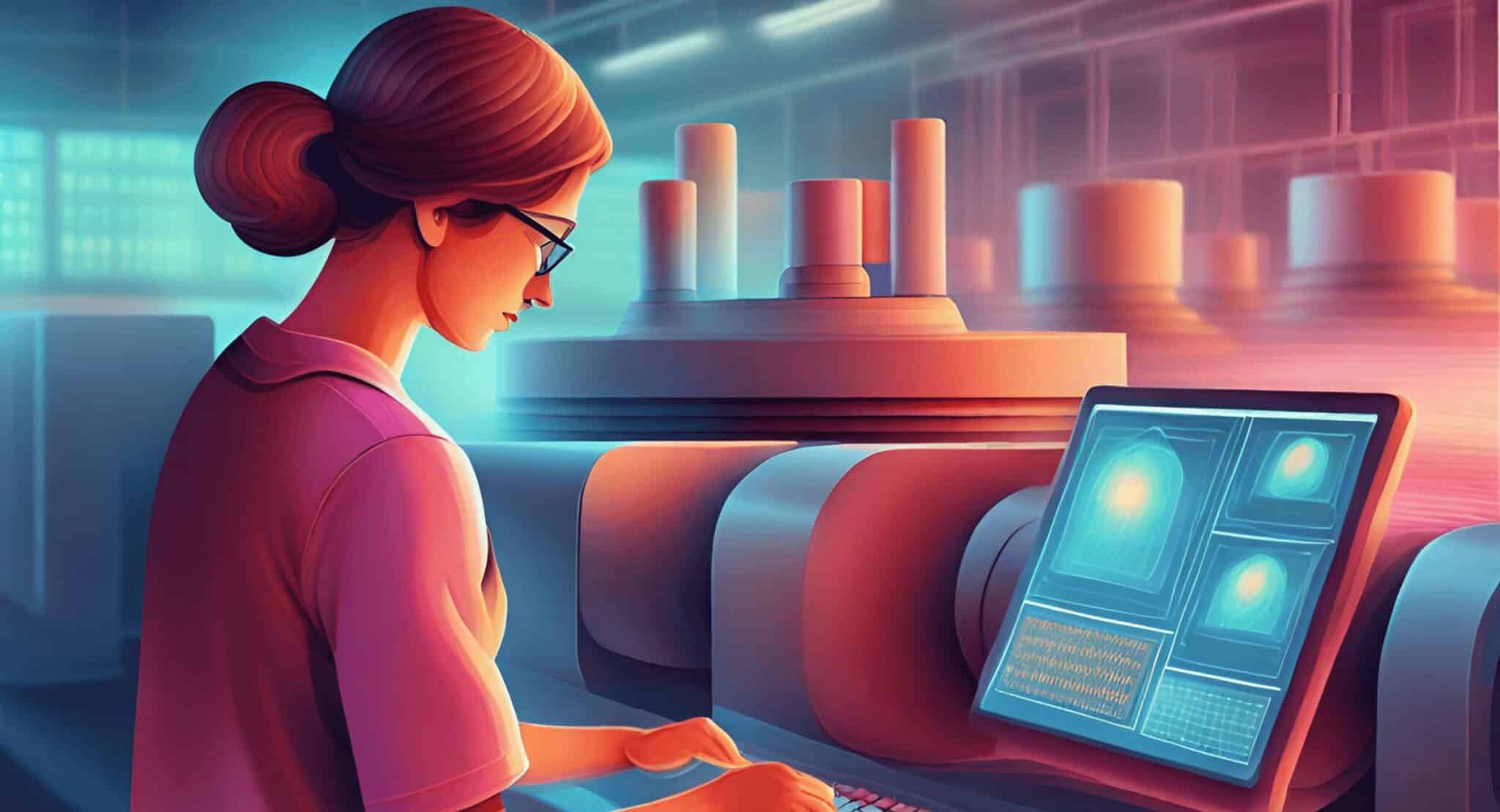Textiles are defined as anything other than fiber, yarn, and fabric, or any other product derived from these combinations. Textiles are very useful in our life. Almost everything we wear comes from processed textiles. This is what makes textiles one of the greatest human needs, namely clothing.
Textiles are also related to the manufacture of garments. Hence, it is very important for the textile industry to use the best system that can support the company’s operations effectively and efficiently. You can use the best ERP system from HashMicro. You can also get a price calculation for HashMicro software based on your business requirements by downloading this pricing scheme here.
Table of Content:
Table of Content
What is the Textile Industry?
The textile industry includes elements such as research, design, development, manufacturing, and distribution of textiles, fabrics, and garments. The textile industry also refers to industries that are primarily concerned with the design or production of garments, as well as the distribution and usage of textiles.
It is a worldwide phenomenon that includes all businesses involved in the development, production, manufacturing, and distribution of textiles. Textile industry is also a highly sophisticated industry.
It begins in agriculture with fiber production, sheep and silkworm husbandry, and metal and mineral mining. Spinning mills, weaving mills, knitting mills, dyeing mills, as well as clothing are all included. In addition, this industry also includes enterprises that sell buttons, zippers, knitting materials, sewing machines and threads, laces, looms, and drapery hardware.
With so many procurements for the textile industry’s needs, it is critical that you employ the best warehouse management system from HashMicro. HashMicro Warehouse Management Software optimizes warehouse space utilization by automatically calculating and tracking warehouse capacity.
Related Articles: Practical Benefits of ERP Systems for Textile Industries
Departments Of Textile Industry
This article will show the various departments of garment manufacturing. We’ll also see the varied functions of the many departments inside a garment unit.
Spinning
Spinning is the process of converting fibers (natural or synthetic) into yarn. There are many steps in the spinning sector, including blowroom, carding, drawing, combing, simplex and ring frames. The first stage in spinning is blowing space. By opening, washing, blending, or blending, the cotton bales are transformed into homogeneous laps of a certain length. Carding is the next step.
Drawing is the third phase. Sliver is mixed, multiplied, leveled, as well as arranged here. The next step is combing. This is a method of straightening and parallelizing the fibers and removing short fibers and contaminants. The next stage is simplex. Sliver is weakened and slightly twisted in this case. Sliver is then converted into roving. Lastly, the bezel is the final step.
Fabric manufacturing
Weaving is the most common method of fabric production. it is a form of discovery that raw materials can be improved prior to weaving. Modern looms fulfill the same functions as traditional hand-operated looms. Winding, warping, sizing, and looming are all components of the weaving department. Knitting is the second most common form of fabric production.
Wet processing
Wet processing is the department that handles de-sizing, scouring, bleaching, washing, mercerizing, dyeing, and other processes. Desizing is the process of removing the sizing materials. Washing cleans the textile material, meanwhile, mercerizing makes the fabric brighter than bright, and dying makes the fabric mono-uniformly colored.
Garments manufacturing
Clothes manufacturing technology refers to the methods and techniques involved in producing garments on a big scale for commercial purposes on an industrial scale. There are three types of garment factories: woven garment factories, knitted garment factories, and sweater garment factories.
We need a sewing machine to make clothes. However, there are different types of sewing machines for different types of stitches. It is very important for textile industry companies to pay attention to whether large amounts of production are wasted or put to good use. With HashMicro Manufacturing System’s demand forecasting feature, you can avoid producing too much or too little.
Textile Industry History
The creation of textiles made from wool from the extensive sheep-farming areas in the Midlands and across the country was an important British industry at the beginning of the 18th century (created as a result of land clearance and enclosure).
Handlooms and spinning wheels were the tools of the trade for weavers in their cottages, and this was a labor-intensive business that provided employment throughout Britain, with significant centers being the West Country, Norwich and its surrounds, and the West Riding of Yorkshire. The textile industry grew out of the industrial revolution in the 18th Century as mass production of clothing became a mainstream industry.
By the late twentieth century, the industry had a terrible reputation in the developed world, sometimes involving immigrants in illegal “sweatshops” full of people working on textile production and sewing machines for less than minimum wage. This movement has come from efforts to defend existing sectors that are under attack by developing countries in Southeast Asia, the Indian subcontinent, and, more recently, Central America.
How Manufacturing Software Helps Textile Industry
The textile industry has complex processes such as manufacturing, distributing, management, and many more. These processes will eventually reduce efficiency when done manually. This is where manufacturing software assists businesses in maximizing efficiency and productivity while maintaining quality.
Utilizing manufacturing software for your textile industry allows you to streamline operational processes such as scheduling, maintenance, reporting, material planning, inventory control, and many more. The centralized system lets you access your data seamlessly. Using the software will enhance your business quality by automating end-to-end business processes.
Conclusion
To sum up, ERP software is a critical business application for an organization to handle day-to-day activities in real time. ERP combines several operations into a single comprehensive system to streamline information and procedures throughout the firm.
The textile and apparel industry is one of the fastest growing businesses and also employs millions of people. The steps required in the textile industry, from design, and manufacture as well as the distribution of yarn to cloth and clothes. It takes a large number of manual processes and also takes a long time.
You need to adopt software that handles all types of textile business needs from sales to shipment to boost efficiency and manage textile processes. Hash Manufacturing Automation System can help you increase the productivity and profitability of your manufacturing business with the best and complete manufacturing system. Get a free HashMicro software demo and pricing scheme calculations with our business experts right at this moment, click here now and don’t miss it!


























































